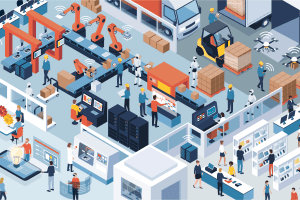Nearly half of UK adults do not trust the integrity of online information, TunnelBear survey reveals

Global study uncovers mistrust in online information and types of censorship citizens believe they face by country
- 48% of British adults report that they don’t trust the integrity of online information
- More than two in five (44%) people, globally, report that they, or someone they know, have experienced internet censorship
- Over one-third (39%) of global respondents believe they face political censorship, from governments and political parties that suppress content to avoid rebellion or embarrassment.
VPN provider TunnelBear released a study, uncovering global perspectives on online censorship experiences of citizens in the United Kingdom, United States of America, Canada, Australia, Russia, Norway and Sweden. The survey showed large segments of people in each country do not trust the integrity of information they find online, with a significant 48% of UK respondents feeling this way, and many suspect censorship is at play.
Consumers believe they face internet censorship
Due to pandemic-induced stay-at-home orders and increasing political activism, online activity across the globe has reached an all-time high in 2020, with Akamai revealing a 30% increase in global internet traffic and Ofcom reporting that British adults now spend an average of four hours a day online. As more connections take place digitally, many people are cautious of the ways censorship may be impacting their ability to gather accurate, real-time information.

TunnelBear’s recent survey found that nearly half (45%) of respondents in the seven countries surveyed do not trust the integrity of information they find online. In fact, two in five (44%) people globally report that they, or someone they know, have experienced internet censorship, with 58% of Brits claiming to have experienced, or heard of someone who has experienced, online censorship in the UK.
Globally, two-thirds (69%) of respondents believe online information accessed in their country might be censored, with over one-third (35%) reporting they believe a significant amount of news is censored in their country. Conversely, 32% of UK respondents admit to never having considered whether this could be the case.
Consumers are suspicious of political censorship
Censorship can take many different forms, impacting users in targeted ways. Consumers are divided in their opinions on the most prominent form experienced today.
According to the survey, over one-third (39%) of respondents believe they face political censorship, as governments and political parties suppress content to avoid upheaval or embarrassment. This number jumps to nearly half (44%) in the USA.
Solutions to effectively combat censorship
As respondents become more cautious of potential censorship, three in ten UK adults (28%) confirmed they would begin using a VPN if there was hard evidence of regulators censoring the internet. In fact, a further 11% of UK respondents claim to always use a VPN today. However, over one in four UK consumers (27%) are not familiar with the technology – and therefore, would be unlikely to use one.
“While consumers are increasingly aware of and wary about internet censorship in the UK and globally, they also need to understand how to combat such intrusions on their freedom,” said Justin Watts, head of engineering at TunnelBear. “At TunnelBear, we are passionate advocates for a free and open internet. Through our latest technology and recent anti-censorship initiatives in countries like Iran and Venezuela, we intend to help everyone access the most accurate and updated information available.”
In countries such as Iran, where this type of censorship is known to be particularly prevalent, TunnelBear has launched an anti-censorship initiative that provides users with enough data to browse the web and view blocked content at no cost to them. TunnelBear also partners with NGOs and other open-internet activist groups to continue expanding its offerings to consumers who need these resources the most.
